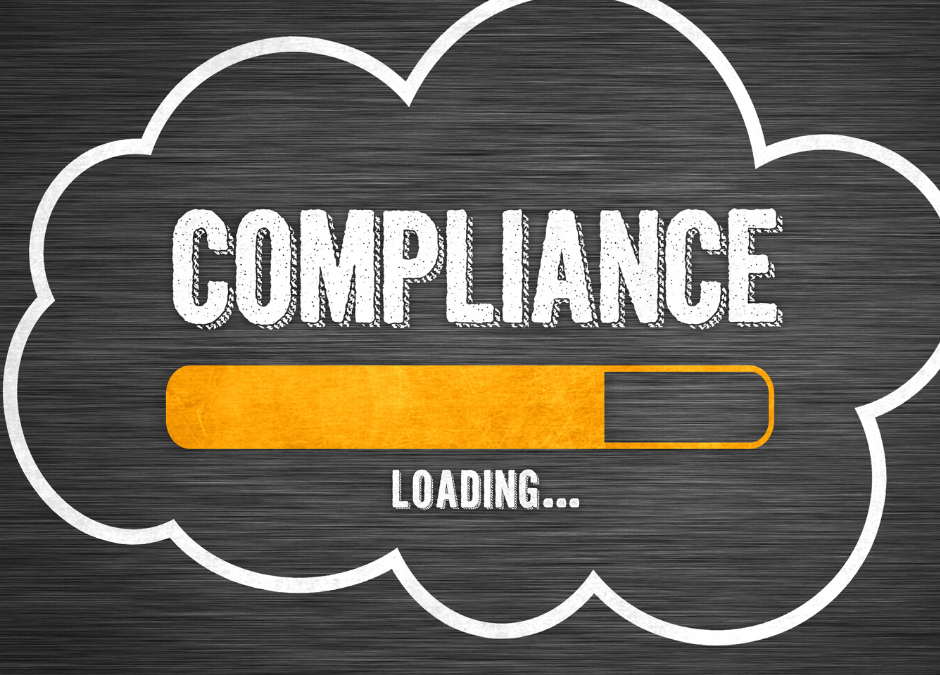By Matthew Dowling
Compliance is complicated. You won’t find anyone to argue with there. The combination of employment and compensations rules and regulations are an ever-changing challenge. Just when you think you have a solid grasp of the most pertinent laws, a new one pops up.
The impact of compliance on the staffing industry is enormous because staffing agencies work in nearly every industry, across countries, states, and city/county lines.
With multi-country and city office locations, plus the ability of a mobile workforce, there is constant uncertainty around this topic. In fact, at times it feels like the only certainty is uncertainty.
There are a TON of different laws and policies impacting staffing, so I’ve decided to focus on three of the most impactful and recent changes to employment and compensation laws:
1. Assembly Bill 5 or AB5, rolled out in California on January 1, 2020, makes it harder for companies to label workers as independent contractors. This new law is sending waves across the staffing industry, since it impacts any company that utilizes independent contractors. In fact, it’s reshaping the gig economy and what it means to be an employee. AB5 offers newly minted full-time workers access to protections like overtime, workers’ compensation, unemployment insurance, and the ability to organize.
Why is this impactful? The most impactful element of the law is that AB5 assumes ALL workers are employees. This means that employers and employees alike must prove numerous stipulations to be classified as an independent contractor.
IMPACT ON HR AND PAYROLL: It’s important to note that the factors impacting an employee versus an independent contractor are likely to change over time. California was the first to act, however other states like New York, New Jersey, and Illinois, are contemplating the implementation of similar laws.
It is imperative to eliminate the risk of misclassifying your workers under the new law. One way to minimize compliance risk is to arm your team with automated compliance software tools. This software provides integrated workforce management capabilities that deliver the necessary, in-depth information you need to comply with compliance regulations.
2. Salary history bans: It’s now illegal for U.S. companies to request job applicant salary history, which means recruiters and hiring managers can no longer use this information to decide on salary offerings or exclude candidates that are deemed too expensive. 17 states and 20 local city and counties have enacted salary history bans thus far, with that number surely to increase.1
IMPACT ON HR: I recommend hiring managers spend time researching this topic to better understand fair salary ranges by geographical location. Salary guide reports from staffing industry experts including ASA Staffing Compensation and Benefit reports can help.
3. The FLSA overtime rule, which went into effect nationally on January 1, 2020, impacts how companies calculate overtime moving forward. The new rule determines whether employees are eligible or exempt from overtime pay, which means that companies will need to change how they manage their overtime costs. This has a direct impact on the staffing industry since companies will need to plan for increased variable costs, which can mean fewer new hires. Exempt employees are not eligible for overtime pay for hours exceeding 40 hours per workweek, while nonexempt employees must be paid time and a half for any time worked over 40 hours in a workweek. The most impactful change is employees making under $35,368 ($684/week; previously $455/week) are now eligible for overtime pay. This equates to over one million additional workers who are now eligible for overtime, and previously were not.
IMPACT ON HR AND PAYROLL: One recommendation is for employees to plan for more dollars going to overtime while determining overtime eligibility for each employee. It will be a challenge to stay updated, as the Department of Labor intends to propose updates to the salary threshold regularly.
Most organizations are likely to be concerned about their overtime costs increasing. However, gaining valuable insights into a company’s workforce data to manage overtime and staffing levels is simplified by leveraging modern human capital management (HCM) technology including a robust timekeeping, payroll, and HR solution.
Kronos can help you navigate the complex world of compliance; Kronos compliance-ready software enables you to:
- Leverage real-time employee compliance data to better manage compliance across your organization
- Keep pace with ever-changing Department of Labor and other government and industry regulations
- Management & monitoring of all time worked for internal and temporary staff & ensured compliance
In this constantly changing world, it’s crucial to stay on top of new and evolving local, state, and federal compliance laws, especially as it relates to human resources and payroll teams.
Without the right workforce solution in place, your organization could be at risk for unnecessary litigation and subsequent financial challenges. Kronos® helps you minimize compliance risk by providing high-quality information that’s centralized, comprehensive, and available in real-time.
Click here to learn more at the Kronos Compliance Page
1. “Salary History Bans by State.” AccuSource, 15 Feb. 2020, accusource-online.com/salary-history-bans-by-state-interactive-map.
Kronos does not determine an employer’s policies and practices. It is the responsibility of each company or organization to determine how to respond and adapt to legislative changes. Kronos does not give legal advice or guarantee legal compliance. This datasheet is meant to identify the current state of wage and hour compliance laws and how a workforce management solution might help with compliance. Please consult with your legal counsel for advice regarding wage and hour compliance and how your use of Kronos products may affect it.


